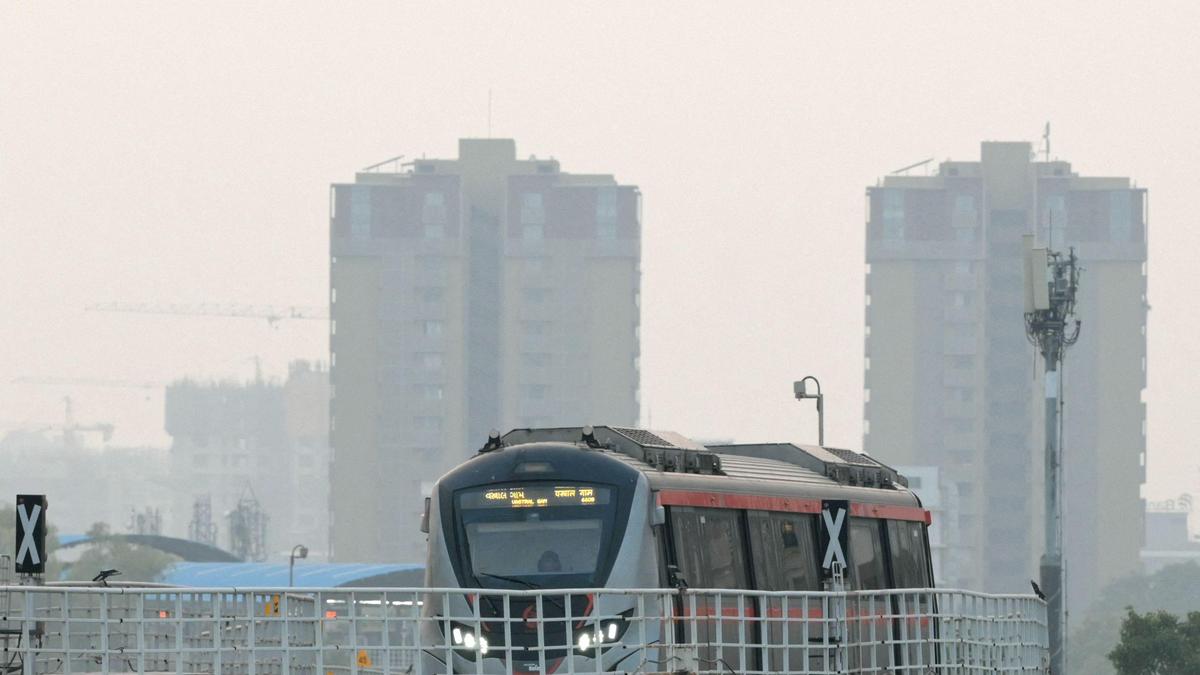A metro train runs amid smoggy conditions a day after the Hindu festival of Diwali in Ahmedabad on October 21, 2025.
| Photo Credit: SHAMMI MEHRA
India’s metro train networks have significantly developed in just over a decade. In 2014, India’s metro network covered 248 km across five cities; by 2025, it covered more than 1,000 km across 23 cities. That makes India home to the world’s third largest metro train network, behind only China and the U.S., according to the Press Information Bureau.
The chart below shows the total length of each metro network in kilometers. The bigger the bars, the longer the network length
Delhi leads with a sprawling 394 km network, followed by Bengaluru (96 km), Mumbai (80.2 km), and Kolkata (74 km). Many of the newer, smaller networks, such as in Nagpur, Lucknow, and Pune, are also expanding at a brisk pace.
Consequently, the average daily ridership has quadrupled over the past decade, from 28 lakh in 2014 to 1.12 crore in 2025.
The Delhi metro alone carries about 65 lakh passengers each weekday, while Bengaluru handles around 10 lakh and Mumbai about 8.5 lakh daily. Kolkata, one of the oldest metro systems, carries more than 6 lakh passengers daily. In 2024, Kolkata launched India’s first underwater metro tunnel.
The chart below shows the average daily ridership of each metro network in lakh. The bigger the bar, the more number of riders
Networks such as Pune (carrying 2.18 lakh passengers daily), Chennai (3.19 lakh), and Hyderabad (4.7 lakh) are seeing steady growth in patronage. Smaller metros such as Lucknow, Nagpur, and Jaipur record between 0.5 to 1.5 lakh commuters a day.
Fares vary widely, though the minimum base fare is generally ₹10 across most metro systems. The table below shows the average fares in various metro networks.
Many metro systems also charge customers on a per km basis. For instance, in the Chennai metro, the base fare is ₹2.14 per km and in the Ahmedabad and Gandhinagar metros, it is ₹1.2 per km. For longer distances, most metros have a fare cap; for instance, the Bengaluru metro caps fares at ₹90 for journeys of 30 km or more.
With inputs from Mohammed Iqbal, Alisha Dutta, Mayank Kumar, Deshpande Abhinay, Anuj Kumar, Moyurie Som, Darshan Devaiah B P, Geetanath V, John L Paul, Sunitha S, and Vinaya Deshpande
Published – October 30, 2025 08:00 am IST
